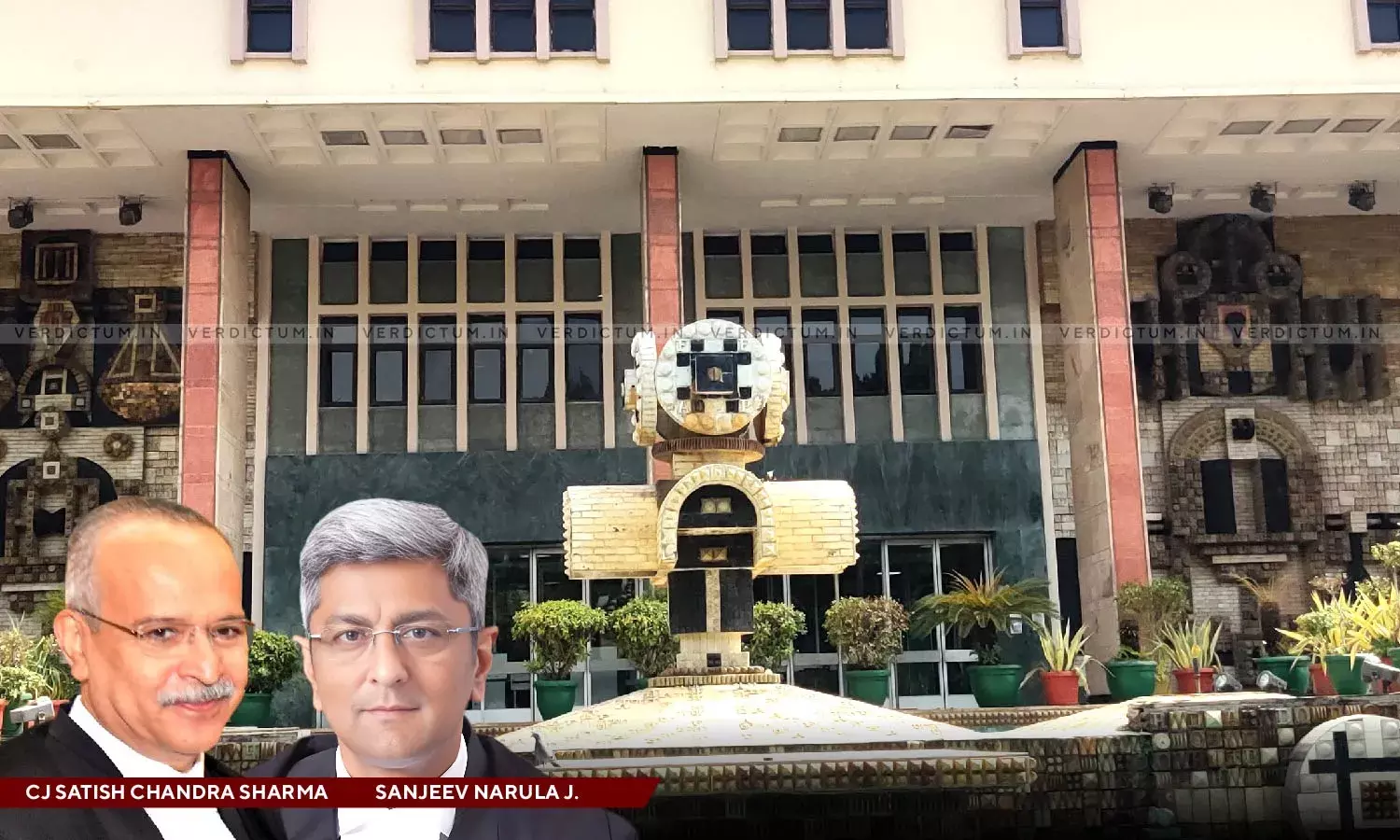"Arbitrary & Misguided": Delhi HC Comes Down Heavily On DU For Cancelling Meritorious Student's Admission Due To Non-Fulfilment Of Subject Mapping Criteria
The Delhi High Court recently came down heavily on Delhi University for revoking a Class XII 'meritorious student' admission in an undergraduate course B.A. (Hons.) Geography, for the Academic Year 2023-2024 at Kirori Mal College, citing 'non-fulfilment of subject mapping criteria' as the student due to the non-availability of an examination in English Literature chose History as per the DU exception/flexibility rule.
Noting that the decision was based on the undue arbitrariness exhibited by the admissions authority, which contravened the stipulations of the information bulletin/prospectus they themselves had issued, the High Court directed the University to grant admission to students against existing vacancies or by increasing the number of seats in case of no vacancy.
The Bench of Chief Justice Satish Chandra Sharma and Justice Sanjeev Narula in its Judgment observed that the student had faced a dilemma when he chose to appear for the Common University Entrance Test (CUET) in the subject of History, a decision influenced by the university's flexibility rule, as English Literature was not offered in the exam. However, the university's strict interpretation of its regulations posed a barrier to his ambition.
Advocates Mohinder J.S. Rupal, Hardik Rupal and Sachpreet Kaur appeared for Delhi University while the Respondent student was represented by Advocates A. Velan, Navpreet Kaur, Nishant Bishnoi and Mritunjay Pathak.
The Court was approached by DU in a Letters Patent Appeal (LPA) challenging the Single Judge order in favour of the student, mandating the university to admit him to the B.A. (Hons.) Geography program for the Academic Year 2023-2024.
The case revolved around the student's choice of subjects for the CUET, where generally, students should select subjects in alignment with their Class XII Board Examination. However, the CUET allowed for flexibility if an individual Central University permitted it. In the absence of 'English Literature' as a CUET subject, the student opted for 'History,' which he considered the closest match to his prior studies.
However, the university later cancelled his admission to the B.A. (Hons.) Geography program, citing "non-fulfillment of subject mapping criteria." In response, the student filed a Writ Petition, leading to the impugned order.
The High Court's decision hinged on two main issues. Firstly, it examined whether 'English Literature' was sufficiently related to 'History' to warrant the student's use of the DU Exception. Secondly, it considered whether the Single Judge's directive to admit the student for AY 2023-2024 was justified.
The Court found that the student had correctly invoked the DU Exception and that the university's denial of admission was unjust. It highlighted the lack of clear criteria for applying the DU Exception and the university's narrow interpretation of its own rules. The Bench observed, "University has failed to provide a cogent rationale regarding the perceived dissimilarity between 'English Literature' and 'History' and overlooked the very essence of the DU Exception. Notably, the University has neither delineated guidelines nor disseminated instructions that clarify the parameters of the DU Exception, such as defining the extent of "similarity" or "closeness" between subjects."
Continuing the Judgment further stated, "This Court is perplexed by the Appellant University's decision to deny Respondent No. 1 the benefit of the DU Exception, especially given the absence of any clear criteria delineating the exception for prospective student. The Appellant University's unilateral issuance of the Cancellation Order appears rooted in a narrow interpretation of Clause 4 of the Information Bulletin. Such an interpretation is not only arbitrary and misguided, but it also runs counter to the fundamental ethos of the CUET and the broader vision of contemporary education."
Accordingly, the Court held, "It is the mandate of educational institutions, especially of the stature of the Appellant University, to uphold the principles of fairness, inclusivity, and clarity. By not providing transparent criteria for the application of the DU Exception, the University not only leaves students in a state of ambiguity. Such an oversight not only dampens the spirit of aspiring scholars but also strays from the responsibility of fostering clarity in rules and their consistent application."
On the second aspect to admit the student for the current academic year, the Court relied on the Judgment of the Supreme Court in S. Krishna Sradha v. State of Andhra Pradesh, (2020) 17 SCC 465 and held that, "In this landmark decision, the Supreme Court delineated specific principles regarding the provision of relief to deserving students who have been unjustly denied admission due to the admissions authority's arbitrary actions."
The Court accordingly dismissed the university's challenge and upheld the Single Judge's Order. "It would a travesty of justice if Respondent is not provided a tangible relief", noted the Judgment.
Cause Title: University Of Delhi v. Ravindra Bishnoi & Anr. [LPA 593/2023]




